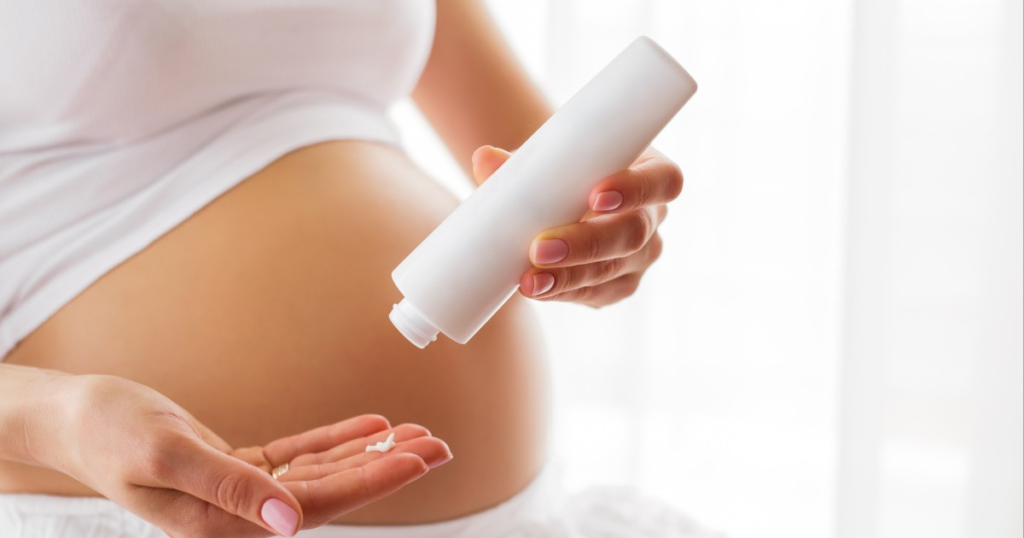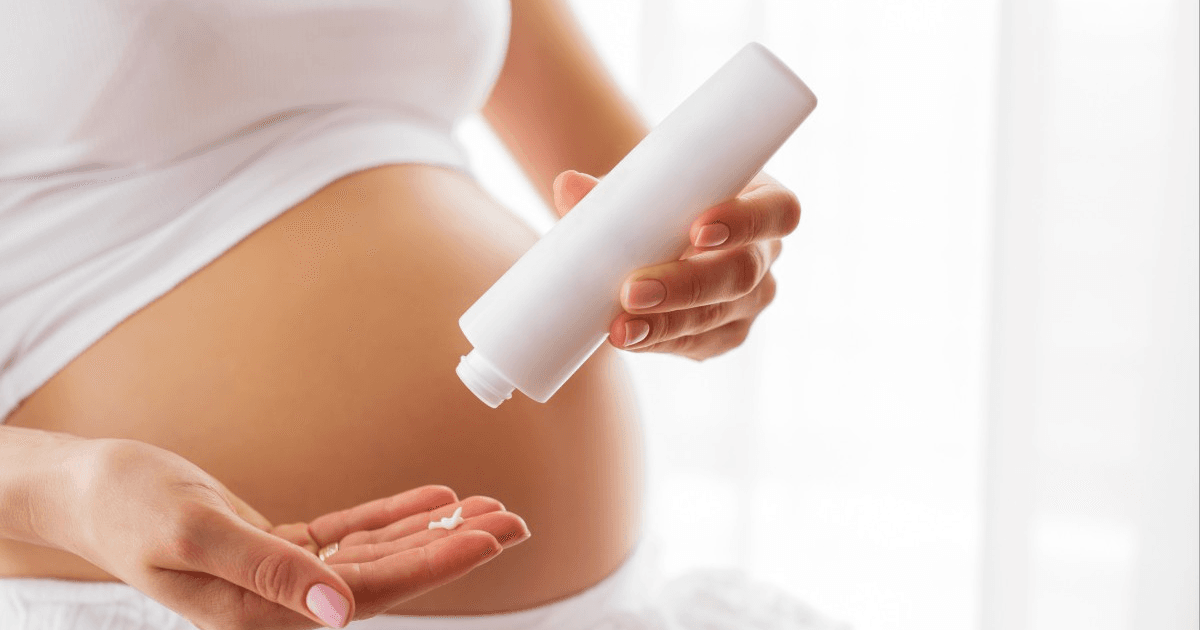
Certain skincare ingredients can pose risks during pregnancy. These ingredients may affect your health and the well-being of your baby.
In this guide, we will explore the skincare ingredients to avoid during pregnancy. We will also highlight safe alternatives to help you build a pregnancy-friendly skincare routine.
Common Skin Changes During Pregnancy
During pregnancy, hormonal changes can cause some skin alterations. You may experience:
1. Stretch Marks
As your body grows to accommodate your baby, the skin stretches rapidly, often resulting in stretch marks. These pink or reddish streaks commonly appear on the abdomen and breasts. Approximately 90% of pregnant women develop stretch marks. During pregnancy, Many skincare professionals suggest using a rich, pregnancy‑friendly moisturiser to keep the skin soft and hydrated. Products formulated for pregnancy, without certain restricted actives, may help manage temporary dryness or itchiness.
2. Hyperpigmentation
Increased melanin production during pregnancy can cause areas of your skin to darken. This often affects the face, leading to a condition known as melasma or the “mask of pregnancy.” In addition, you might notice a dark line running from your navel to your pubic area, called the linea nigra. These changes are common and usually fade postpartum.
3. Spider and Varicose Veins
Pregnancy increases blood volume and hormonal changes, which can cause blood vessels to become more prominent. Spider veins are small, reddish veins visible on the skin’s surface, while varicose veins are larger, swollen veins, often appearing on the legs. These veins are caused by hormonal changes and usually fade after childbirth.
4. Acne
Hormonal fluctuations can increase oil production, causing acne breakouts. It’s essential to consult your healthcare provider or dermatologist before using any acne treatments.
Skincare Actives to Avoid During Pregnancy
Being mindful of the ingredients in your skincare products is crucial during pregnancy. Some ingredients can pose risks to your developing baby. Here are some skincare ingredients you should avoid.
1. Retinoids
Retinoids are vitamin A-based products that help with cell turnover. They include oral and topical forms, such as isotretinoin, tretinoin, adapalene, and tazarotene. Oral retinoids have been associated with a risk of birth defects and are not recommended during pregnancy.
2. Hydroquinone
Hydroquinone is a skin-lightening agent often found in products for dark spots and hyperpigmentation. While research on its safety during pregnancy is limited, hydroquinone is absorbed through the skin at high rates. Some experts suggest avoiding this ingredient as a precaution during pregnancy.
3. Salicylic Acid (in High Doses)
Salicylic acid is commonly used in acne treatments. However, you should avoid oral medications or peels that contain high doses of salicylic acid. Higher concentrations of this beta‑hydroxy acid are not generally recommended in pregnancy. Lower concentrations of salicylic acid in many over‑the‑counter products may be acceptable, but it’s best to discuss them with your healthcare provider.
Frequently Asked Questions
You should avoid retinoids, hydroquinone, and high doses of salicylic acid, among others.
Yes, vitamin C is safe for your skin during pregnancy.
Yes, mineral sunscreens are safe. Mineral sunscreens containing physical blockers like zinc oxide or titanium dioxide are generally recommended.
Book A Consultation About Skincare Products and Ingredients to Avoid During Pregnancy
If you have concerns about the skincare products you’re using or considering during pregnancy, we invite you to book a consultation with us at Jennifer Carly Aesthetic Medicine. Our team will provide personalised advice to help you establish a safe and effective skincare routine tailored to your needs. Taking care of your skin is essential, and using appropriate products ensures the well-being of both you and your baby.
